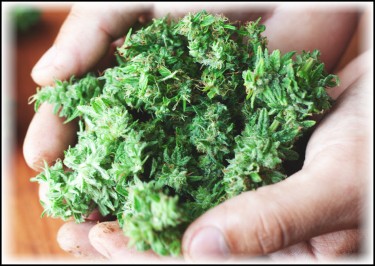
Gov. Newsom’s Hemp Ban Goes Into Effect: Consequences for Industry, Investors, and Patients
On September 23, 2024, California Governor Gavin Newsom’s emergency ban on hemp-derived THC products officially came into effect, marking a significant shift in the state’s approach to cannabis regulation. This decision has stirred a whirlwind of reactions from various stakeholders, including industry leaders, investors, medical patients, and advocates for cannabis reform. As the dust settles on this controversial move, it is essential to explore the implications of this ban and what it means for California’s burgeoning hemp industry.
48 Hours later, Cheech and Chong’s cannabis company—filed a lawsuit seeking to overturn new California regulations that outlaw most consumable hemp products in the state, including those containing any intoxicating cannabinoids derived from the plant. The lawsuit says the new guidelines, backed by Gov. Gavin Newsom (D), are based on a faulty declaration of “emergency” and were created only after officials failed to effectively implement hemp regulation legislation that was enacted in 2021.
Background on Hemp and THC Products
Hemp has long been recognized as a versatile crop with various applications, from textiles to food products. However, the legalization of hemp-derived products in California gained momentum following the passage of the 2018 Farm Bill, which legalized hemp cultivation and the production of hemp-derived cannabinoids like CBD and THC. This legislation opened the floodgates for a new wave of products that have flooded the market, including edibles, beverages, oils, and other consumables.
As consumers became increasingly interested in the therapeutic benefits of cannabinoids particularly CBD and its psychoactive counterpart, THC, the market exploded. By 2023, California had established itself as one of the largest markets for hemp-derived products in the United States. However, this rapid growth also raised concerns about product safety, labeling accuracy, and youth access to intoxicating substances.
The Rationale Behind the Ban
Governor Newsom’s administration has framed the ban as a necessary measure to protect public health and safety. The primary concern cited by state officials is the potential for youth access to intoxicating substances derived from hemp. With an increasing number of products containing THC entering the market—many marketed toward younger consumers the state has taken a proactive stance to mitigate any potential harm.
In a press conference announcing the ban, Governor Newsom stated, “We must prioritize the health and safety of our children. While we recognize the benefits that hemp-derived products can offer to many adults, we cannot allow our youth to be exposed to these intoxicating substances without proper regulation.”
The ban specifically targets products containing Delta-8-THC and Delta-9-THC derived from hemp. These cannabinoids have gained popularity due to their psychoactive effects and perceived safety compared to traditional marijuana products. However, critics argue that this perception is misguided and that more regulation not a complete ban is necessary to ensure product safety.
Consequences for the Hemp Industry
The consequences of Governor Gavin Newsom’s hemp ban in California are significant and multifaceted, affecting various stakeholders within the industry.
-
Financial Losses for Retailers and Manufacturers
The sudden prohibition of hemp-derived THC products is expected to lead to substantial financial losses for retailers and manufacturers. Many businesses that have invested heavily in the production and marketing of these products may find themselves unable to recoup their investments. As sales plummet due to the ban, companies may face severe cash flow issues, potentially leading to closures or relocations outside of California. This financial strain threatens not only the viability of individual businesses but also the overall economic health of the hemp sector.
-
Job Losses Across the Industry
As businesses grapple with the fallout from the ban, workforce reductions may become inevitable. The hemp industry has become a vital part of California’s agricultural landscape, employing thousands. However, with many companies forced to shutter operations or downsize, widespread job losses could occur. This situation would not only impact those directly employed in the hemp sector but also ripple through local economies that rely on these jobs.
-
Challenges for Farmers
Farmers who have dedicated resources to cultivating hemp may struggle significantly as legal avenues for selling their crops diminish. With the ban in effect, many farmers could be left with unsold inventory and no clear path to market their products. This disruption could lead to a significant oversupply of hemp in California, further complicating efforts to stabilize prices and maintain profitability.
-
Shift to Unregulated Markets
As consumers seek alternatives to legally unavailable hemp products, there is a risk that they will turn to unregulated or black-market sources. This shift undermines legitimate businesses and poses safety risks associated with untested products. Consumers may inadvertently expose themselves to harmful substances or contaminants that are not present in regulated products, raising serious public health concerns.
Broader Implications for Supply Chains
The ban’s broad scope threatens not only California’s hemp market but also the national supply chain for hemp-derived products. Given California’s status as a major player in the cannabis industry, disruptions here could have cascading effects on producers and retailers across the country. This situation raises concerns over state overreach and potential violations of interstate commerce laws, which could lead to legal challenges against the emergency ruling.
These consequences highlight the complex interplay between regulatory actions and market dynamics within California’s hemp industry, underscoring the potential for widespread disruption as stakeholders navigate this challenging new landscape.
Implications for Medical Patients
One of the most concerning aspects of Governor Newsom’s ban is its impact on medical patients who rely on hemp-derived products for therapeutic relief. Many individuals use these products to manage chronic pain, anxiety disorders, epilepsy, and other medical conditions.
-
Access to Treatment
Patients who have found relief through CBD or low-dose THC products are now faced with limited options for treatment. With many popular brands being pulled from shelves overnight, some patients may struggle to find alternative therapies that work as effectively for them.
For example, individuals suffering from epilepsy often use CBD oil as part of their treatment regimen due to its anticonvulsant properties. The sudden unavailability of these products could lead to increased seizure activity and deterioration in quality of life for some patients.
-
Panic Buying Preceding Ban
In anticipation of the ban taking effect, many consumers rushed to purchase remaining stockpiles of their preferred products. Reports emerged across California of panic buying at local dispensaries and health stores as patients sought to stock up before losing access completely.
This surge in demand led to shortages in certain areas as retailers struggled to keep shelves stocked amid heightened consumer interest. While some patients managed to secure supplies ahead of time, others were left empty-handed as stores quickly ran out of popular items.
-
Public Opinion on the Ban
Public opinion regarding Governor Newsom’s decision is divided along various lines—some support his efforts to protect youth while others criticize him for overreach into personal choice and economic freedom.
Supporters’ Perspectives
Supporters of the ban argue that it is necessary for public health reasons. They point out that many young people are unaware of the potential risks associated with consuming intoxicating substances derived from hemp. Advocates emphasize that education about responsible consumption should precede any further deregulation within this sector.
Proponents believe that regulating rather than banning these products would create a safer marketplace where consumers can make informed choices about what they consume.
Critics’ Concerns
Conversely, critics contend that banning these products will only drive consumers back into unregulated markets where safety standards are non-existent. They argue that consumers should have access to safe and tested products rather than being forced into potentially dangerous black-market alternatives.
Many advocates also express concern over how this ban disproportionately affects marginalized communities who rely on affordable access to therapeutic alternatives provided by hemp-derived products.
Potential Future Developments
-
Legislative Revisions
In response to public outcry from both supporters and opponents of the ban, state lawmakers may seek revisions or amendments to the existing regulations governing hemp-derived THC sales. This could involve creating stricter guidelines around marketing practices targeting minors while still allowing adults access without undue restrictions. Such revisions would aim to strike a balance that addresses public health concerns while preserving consumer choice and the economic viability of the hemp industry.
2.Increased Advocacy Efforts
Advocacy groups representing patients who rely on medicinal cannabis therapies and businesses affected by the regulatory changes are likely to ramp up efforts aimed at influencing policymakers. These organizations may push back against similar bans in other states, advocating for more equitable regulations that protect consumer rights and ensure safe access to hemp products. Their efforts could also focus on promoting collaborative approaches to regulation that involve industry stakeholders, thereby fostering a more inclusive dialogue about hemp policy.
3. Legal Challenges
The implementation of the ban has already prompted legal action from industry stakeholders, including Cheech and Chong’s cannabis company. Lawsuits challenging the legality of the emergency regulations are expected to unfold, potentially leading to court rulings that could alter or overturn aspects of the ban. These legal battles may draw attention to the need for a more nuanced regulatory framework that considers both public safety and the rights of businesses and consumers.
4. Public Health Initiatives
As discussions around hemp regulation continue, there may be an increased focus on public health initiatives aimed at educating consumers about safe usage practices for hemp-derived products. This could include campaigns that inform consumers about the differences between regulated and unregulated products, as well as resources for identifying safe options. Such initiatives could help mitigate some of the public health concerns that prompted the ban in the first place.
5. Market Adjustments
In anticipation of potential changes in regulation, businesses in the hemp industry may begin to adapt their product offerings and marketing strategies. Companies might explore new formulations that comply with existing regulations while still appealing to consumers. This adaptability could help stabilize the market as stakeholders respond to evolving legal and consumer landscapes.
6. Collaboration with Regulatory Bodies
There may be opportunities for increased collaboration between industry representatives and regulatory bodies. By engaging in constructive dialogue, stakeholders can work together to develop regulations that effectively address public health concerns without stifling innovation and economic growth within the hemp sector. Collaborative efforts could lead to more tailored solutions that reflect the complexities of hemp products and their uses.
Conclusion
Governor Newsom’s emergency ban on hemp-derived THC products marks a critical juncture for California and the broader cannabis regulatory landscape in the United States. As stakeholders confront immediate challenges such as economic fallout, job losses, and supply chain disruptions, it is essential for industry leaders, investors, and medical patients to engage collaboratively in seeking solutions that address public health concerns while ensuring equitable access to safe and effective treatments. The coming months will test the resilience of California’s cannabis community and its ability to adapt to these challenges. Through legal battles, legislative revisions, and advocacy efforts, it is clear that significant change is on the horizon, which will influence not only cannabis consumption in California but also set precedents for other states facing similar regulatory issues.







